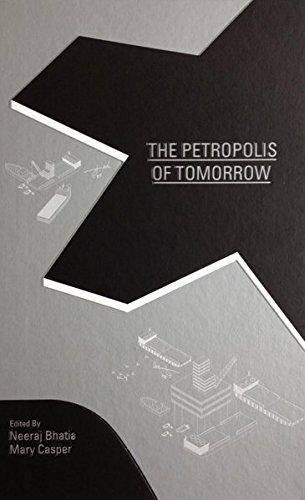
The Petropolis of Tomorrow
(Hardback, English)
Publishing Details
The Petropolis of Tomorrow
By (Author) Neeraj Bhatia
Edited by Mary Casper
ActarD Inc
ActarD Inc
2nd December 2013
English
Spain
Classifications
General
Non Fiction
Architecture
Urban and municipal planning and policy
City and town planning: architectural aspects
307.12
Physical Properties
Hardback
576
Width 152mm, Height 226mm, Spine 46mm
1429g
Description
In recent years, Brazil has discovered vast quantities of petroleum deep within its territorial waters, inciting the construction of a series of cities along its coast and in the ocean. We could term these developments as Petropolises, or cities formed from resource extraction. The Petropolis of Tomorrow is a design and research project, originally undertaken at Rice University that examines the relationship between resource extraction and urban development in order to extract new templates for sustainable urbanism. Organized into three sections: Archipelago Urbanism, Harvesting Urbanism, and Logistical Urbanism, which consist of theoretical, technical, and photo articles as well as design proposals, The Petropolis of Tomorrow elucidates not only a vision for water-based urbanism of the floating frontier city, it also speculates on new methodologies for integrating infrastructure, landscape, urbanism and architecture within the larger spheres of economics, politics, and culture that implicate these disciplines. Contributions: Oriol Bohigas, Arnold Reijdorp and Casanova+Hernandez
Reviews
The Petropolis of Tomorrow featured on NPR, National Public Radio:
Plans for man-made islands -- designed by Rice University architecture students -- have attracted the attention of one of the world's largest oil companies as a way to house way-offshore oil workers.
--Wade Goodwyn, February 25, 2014
Author Bio
Neeraj Bhatia is an architect and urban designer from Toronto. His work resides at the intersection of politics, infrastructure, and urbanism. Bhatia is a codirector of InfraNet Lab, a non-profit research collective probing the spatial byproducts of contemporary resource logistics, and the founder of The Open Workshop, a design office examining the project of plurality. He has worked for Eisenman Architects, Coop Himmelblau, Bruce Mau Design, OMA, and ORG. Bhatia has previously taught at Rice University, University of Toronto, University of Waterloo, and Ohio State University. His research has been published in Volume/Archis, Thresholds, Footprint, Domus, Onsite Review, Field Journal, and Yale Perspecta. Bhatia received his master's degree in architecture and urban design from MIT where he studied on a Fulbright Fellowship. Prior to that, he attended the University of Waterloo where he obtained a bachelor of environmental studies and a bachelor of architecture.
